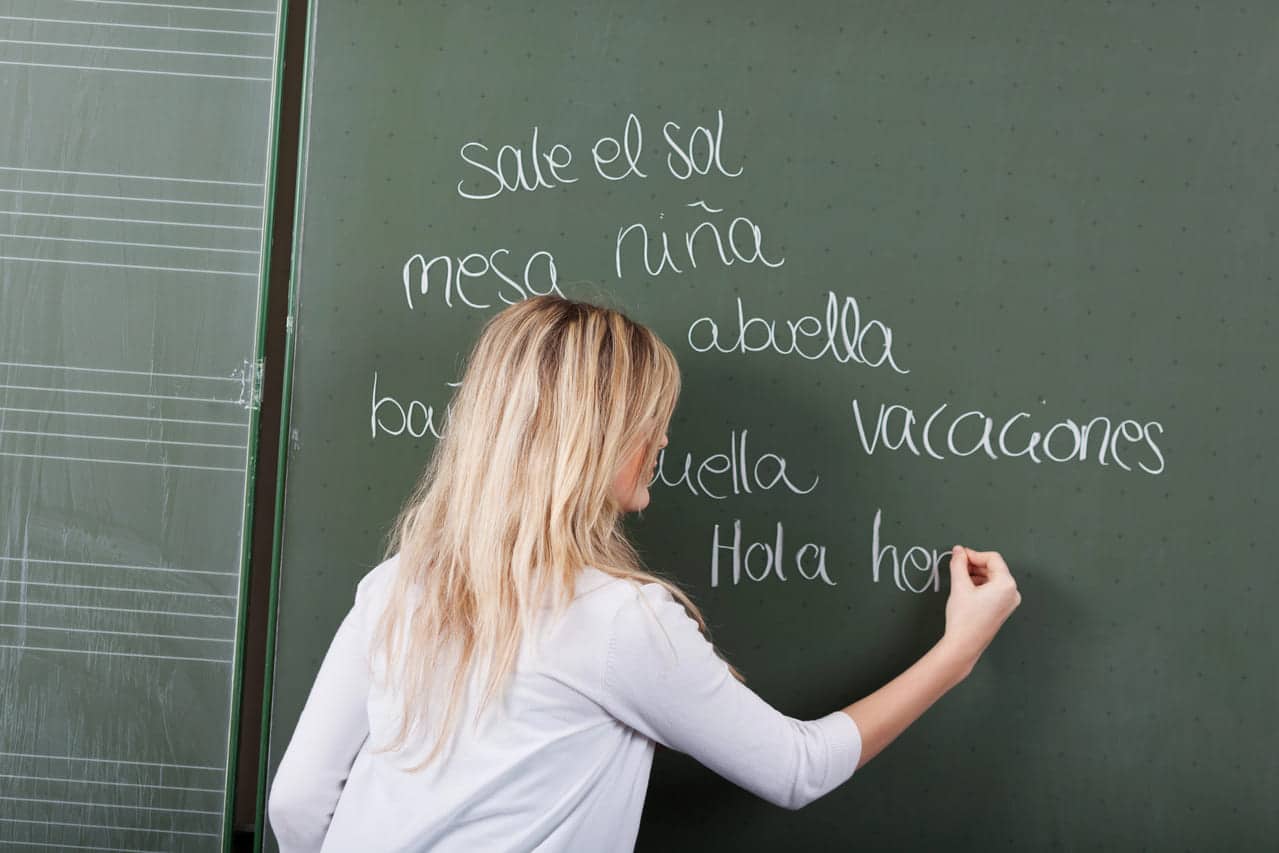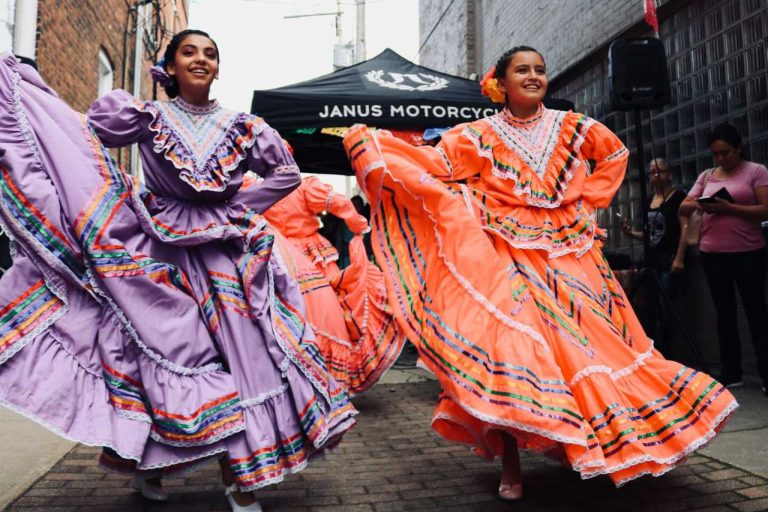
The Hardest Words in Spanish for English Speakers
DATE:
Learning languages can be a struggle at times and Spanish is no exception. Whether you have trouble with pronunciation or just with remembering how to conjugate some common words, you’re not alone!
The Spanish language contains a lot of sounds and vocabulary that can prove to challenge for an English speaker, but with enough practice, you’ll be able to master them in no time.
But not all hope is lost. Here is a list of some of the most difficult Spanish words, so you can get ahead of the game and start practicing now.
The most difficult words to pronounce
1. Desafortunadamente
This is one of the first Spanish words you’ll learn when you first start out. The problem is that it has eight syllables, de-sa-for-tu-na-da-men-te.
But fear not: each syllable is fairly easy for Spanish learners, it’s just a long word that you have to practice pronouncing. For hard words like this, a good technique is to go backward progressively.
For example, first, say “te”. Then say, “men-te”, then “da-men-te”, etc. It’s a pretty effective way of training your mouth to get used to difficult Spanish words.
2. Aburrido
The dreaded double r. One of the most notoriously difficult sounds in the Spanish language for a native English speaker.
To make it worse, the “U” and the “O” can also be difficult for many English speakers since they make different sounds in Spanish. Plus, the letters “B” and “D” can be tricky to pronounce if you don’t know the rules.
But don’t worry, the rolled R can be perfected after training your tongue a bit. We can go over that later.
The “U” and the “O” sounds can be mastered in the same way. Just remember that Spanish vowels are much shorter than in English. Your cheek muscles should also be tighter when you say the vowels, so make sure you keep your mouth tense.
Finally, for the “B” and the “D”, here’s a good tip that many native Spanish speakers don’t realize: they are pronounced differently when they sit between two vowels. This kind of sound is called an “approximate” because your mouth should be approximately close, but not completely.
Practice making a normal “B” sound, but don’t let your lips touch and you’ll have the /β̞/ sound. And for the letter D, make the “TH” sound from the word “that”, /ð̞/.
This might sound like a lot to learn at once, but this word is great for Spanish students. Once you’ve mastered this word, you’re basically a pro at Spanish pronunciation.
3. Cuatro

For such a basic Spanish word, this is one of the most difficult Spanish words to pronounce. The “tr” sound is definitely tricky for English speakers.
Remember not to pronounce the last syllable like you would in English. For the “R”, you have to make your tongue quickly tap the roof of your mouth.
The Spanish single r is actually the same sound that Americans make for the letter “T” or “D” sometimes. Think about what your tongue does when saying the word “water” quickly.
Once you get that sound, add the “T” sound first. Practice saying these two sounds consecutively until you’re able to pronounce them all together.
DID YOU KNOW…?
Spanish pronunciation is one of the most difficult parts of the language for an English speaker. In our Online Spanish Conversation Group Classes, you’ll be able to practice your pronunciation in a relaxed environment, so you don’t get frustrated. ¡La práctica hace el maestro!
4. General
This word is often pronounced incorrectly when English natives speak Spanish.
In Spanish, the letter G is pronounced like an English “H” /h/ when it’s followed by the letter E or I. So the first syllable should be said the same way as “hen” in English (At least in Latin America, but in Spain it makes a stronger sound).
Desafortunadamente, sometimes the most difficult Spanish words to pronounce are the ones that look too easy.
5. Murciélago
This is one of the best words to learn Spanish vowels. It’s one of the only Spanish words with every vowel, so make sure you write this one down if you need to practice these sounds.
Murciélago isn’t something native speakers will hear every day, but for Spanish learners, it’s a great word to practice your vowel pronunciation.
Tricky Spanish words to remember

1. Sensato vs Sensible
Just like in life, when you are learning a language, you have to beware of false friends.
Sensato does not mean sensitive, it means sensible. Un chico muy sensato is a smart kid.
But sensible doesn’t mean sensible, it means sensitive. Un chico muy sensible is a very sensitive kid.
So they might not be the most difficult Spanish words to pronounce, but you definitely need to keep an eye out for pairs like this when you’re speaking Spanish.
2. Quitar vs Remover
This is another famous pair of words that causes trouble for many Spanish learners.
Quitar does not mean to quit, it means to remove / take off / get rid of.
- Usa jabón para quitar esa mancha. – Use soap to remove / get rid of that stain.
As you might expect, remover does not mean remove. It means to stir.
- Sigue removiendo para que no se queme. – Keep stirring so it doesn’t burn.
This pair tends to be some of the most difficult Spanish words for learners to remember, so the best thing to do is to practice using it in context.
3. Agujeros vs Agujetas
Since these two words can sound so similar to many foreigners, plus the fact that it can be relatively difficult Spanish words to pronounce, they definitely make it onto this list.
Agujeros means holes, as in little holes in the ground or in your shirt.
- Esta camiseta es muy vieja ya, mira cuántos agujeros… – This shirt is old by now, look how many holes it has…
The Spanish word “agujetas” refers to muscle aches, like when your body is sore from a workout.
- No quiero subir las escaleras, aun tengo agujetas del gimnasio. – I don’t want to go up the stairs, I’m still sore from the gy1
And remember: the letter J in Spanish isn’t pronounced like an English J, it’s the same sound that we talked about in general (the English H sound /h/ ).
4. Papá vs Papa
These two are some hard Spanish words to master because the only difference is the stressed syllable, so learners often get confused.
Papá, with emphasis on the second syllable noted by the accent mark, means “dad”, so that isn’t too difficult.
Papa, with the stress on the first syllable can mean different things. When it is capitalized, Papa means “pope”, but if it isn’t capitalized, it can mean “potato” in Latin America or “potato chips” in Spain.
You can see that at a first glance, these Spanish words aren’t very difficult to pronounce, but sometimes it gets confusing remembering the difference when you’re trying to speak fluently, so practice makes perfect.
5. Mayor vs Mejor
This is another one of the typical mistakes English natives make when learning Spanish. It’s common to mix the two up and some learners might think they’re the same word.
Mayor can mean “older” or “bigger”.
- Mi hermano mayor es médico. – My older brother is a doctor.
- El Burj Khalifa es mayor que la torre Eiffel. – The Burj Khalifa is bigger than the Eiffel Tower.
Mejor, on the other hand, only means “better”.
- Cada vez hablo mejor el español. – My Spanish keeps getting better (not literal)
- ¿Cómo te encuentras? Mejor, gracias. – How are you feeling? Better, thanks.
Hard Spanish words to conjugate
1. Caber
Most likely the most difficult word in the language to conjugate. This verb is irregular in almost every tense.
In el presente indicativo: Yo quepo, pero tú cabes.
In el pretérito: Yo cupe y él cupo
In el futuro: Yo cabré
On the bright side, the pronunciation isn’t too difficult!
2. Traer
Just like caber, most learners will find themselves checking out the Spanish dictionary pretty often when they need to conjugate this verb.
Luckily, if you remember the yo form of the present simple (traigo) and all the forms in the preterite (traj-), the rest of the conjugations follow a pattern.
3. Saber
The word Saber has the same problem that traer has. The yo form of the present simple, the present subjunctive, and everything in the preterite is difficult, so the earlier you memorize this word, the better!
- Yo sé que tú sabías que yo supe que él no quería que yo supiera conjugar el verbo saber, aunque no creo que él lo sepa. – I know that you knew that I found out that he didn’t want me to know how to conjugate the verb to know, but I don’t think that he knows that.
4. Hacer
Desafortunadamente, a lot of the most common words also tend to be the most difficult words to conjugate. In fact, Hacer en pretérito imperfecto is the only tense that is regular for this verb, so it’s definitely one of the hardest Spanish words to memorize.
If you’re not a big fan of memorizing charts, a good idea is to challenge yourself to use one tense a day when you’re practicing, this way you can master it in context.
5. Haber
This might be the hardest word to conjugate, both for natives and for English speakers.
For English speakers, the difficult part is that many of the Haber conjugations (when using it as part of a compound verb) are irregular.
- ¿Qué has hecho? – What have you done?
- No creía que ya lo hubieras hecho. – I didn’t believe that you had already done it
Then, for people with Spanish as their native language, the problem comes from the fact that the impersonal use doesn’t change with singular/plural nouns, even though every other verb does.
For example, many native speakers say “habían muchos coches” instead of the technically correct “había muchos coches”.
And to top it off, many native speakers will use “haiga” instead of “haya” as the subjunctive form. That’s a topic for another day, but the reality is that you’ll definitely come across this usage, so it’s helpful to keep in mind.

Use what you learned!
Just like in every language, Spanish is full of words that are difficult to learn. Whether it’s hard to pronounce or just confusing to remember how to use it, the only way you’ll master it is by practicing.
If you’re ready to put your skills to the test, go ahead and sign up for a free private class or a 7-day free trial of our group classes!











